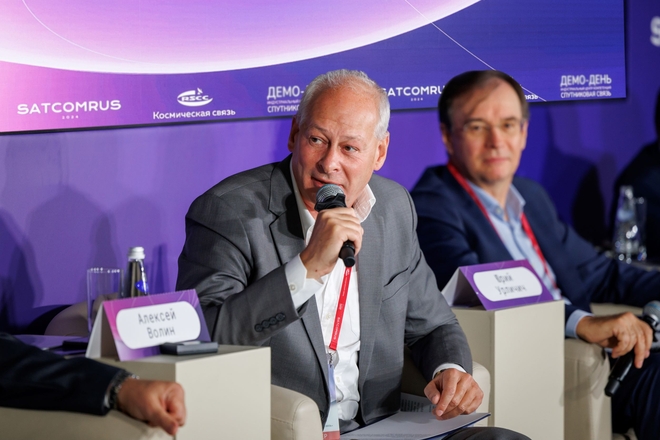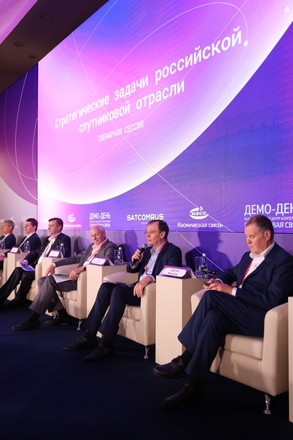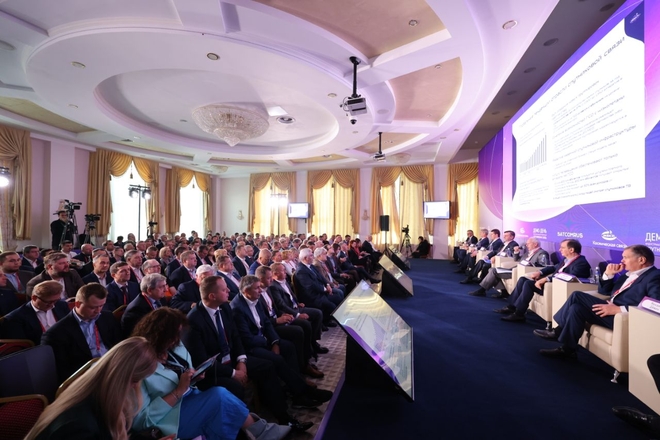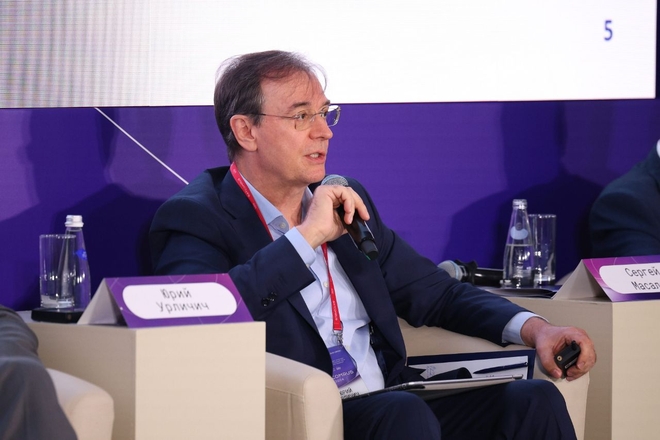What the future holds for the satellite: RSCC General Director Alexey Volin told at the SATCOMRUS conference about the directions of development of the satellite industry in Russia for the next 10-15 years
The shape of the Russian space communications market for 2030-2040 should be determined soon: the next few years will be key for the industry and will greatly influence what its image will be. At the same time, the industry now faces several serious challenges that must be collectively resolved, said General Director of RSCC, Chairman of the Industrial Competence Center (ICC) ‘Satellite Communications’ at the XXIX international conference SATCOMRUS 2024. The event, organized by RSCC, took place on October 3-4 in Yaroslavl.
‘We see a large number of non-geostationary projects to create — both remote sensing and telecommunications. At the same time, all constellations assume a solid budget participation in their implementation, which is logical, since there is no business in our field without the contribution of the government. But here a number of fundamental questions arise, namely: does the state have enough money for everyone? Will the industry be able to cope with production of this scale? Are there enough rockets for us to put all these spacecraft into orbit? And what will they cost? Who, to what extent and for what money will use the services?’ — said Alexey Volin at the plenary session of the conference.
The good news is that despite the difficulties, no one refuses to implement planned projects, added General Director of RSCC. The main constellations continue to appear in government documents, so most likely the BUREAU 1440, Gonets, Skif and Marathon systems will be brought to life. There is still hope that nothing will change under the new Yamal and Express-RV spacecraft either.
‘The plans of our colleagues are extremely important to us, because taking them into account, we are developing our own satellite constellation, which we will update in 2026-2030. And already now we should decide who, from whom and which service will use all the players of the market. So that later there would be no shortage of resources or, conversely, underutilization of spacecraft," Alexey Volin summed up.
Yuri Urlich, Advisor to the General Director of RSCC, Chairman of the Council of the Association of Satellite Communications Market Players, who also moderated the plenary session of SATCOMRUS 2024, discussed the challenges facing the industry on a global scale. He listed the main trends in the field, including:
- creation of low-orbit (LEO) broadband access systems with super-powerful orbital constellations in the Ku-, Ka-, Q- and V-bands;
- designing hybrid systems based on LEO for direct-to-device services and LPWAN networks in the bands below 3 GHz;
- optimization and expansion of satellite operator services using multiorbital strategies;
- increasing the bandwidth of broadband systems to uplink and downlink channels speeds commensurate with terrestrial networks;
- achieving prices for services commensurate with analogues in terrestrial networks by minimizing the cost of spacecraft in orbit and using system solutions based on open protocols.
The plenary session was also attended by Evgeny Nesterov, General Director of RESHETNEV JSC, Oleg Ivanov, General Director of FSBI NIIR, Sergey Masalov, First Deputy General Director of Gazprom AIT Facility LLC, Oleg Himochko, First Deputy General Director of Gonets Satellite System JSC, Mikhail Demin, General Director of NTV PLUS LLC, Viktor Strelets, Chairman of ITU-R Study Group 4 and Ksenia Drozdova, General Director of MOKS Intersputnik.



